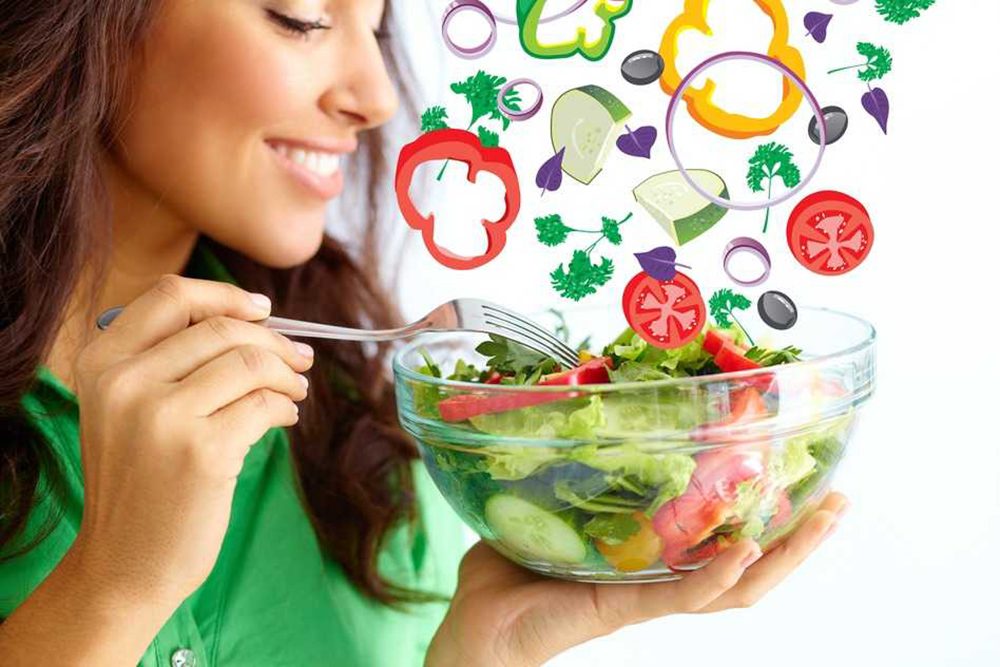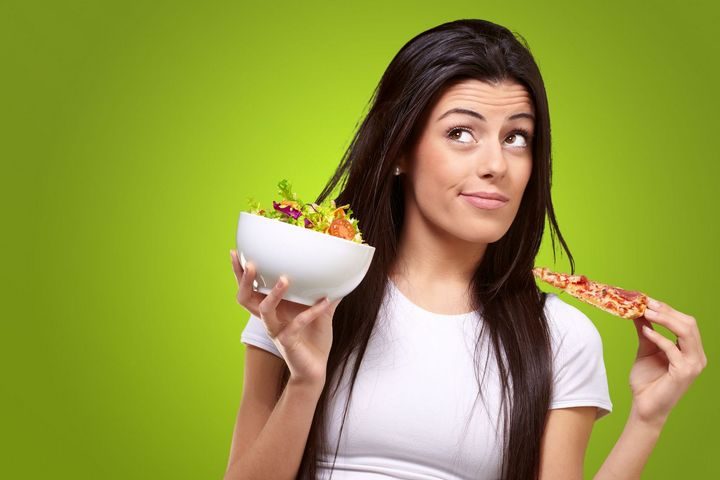Contributed by Kelly Lam, founder of The Whole Purpose

We’ve all had those days – waking up feeling impossibly irritated, upset or just plain down in the dumps. But there is an answer to keeping the blues away, and believe it or not, it’s in the food you choose to nourish your body, food that helps to feed your emotions with kindness. To increase emotional wellbeing, incorporate these seven mood-booster foods into your daily diet, and you’ll be left to stand back and enjoy the soothing results.
1. Chocolate
Besides the obvious benefit of it being delicious, chocolate is a cacao confection that stimulates the production of endorphins in the brain and acts as an antidepressant. In moderation, chocolate has the ability to lower blood pressure and reduce LDL cholesterol (bad cholesterol) by up to 10 percent, so when you are feeling stressed or depressed, chocolate is indeed a great solution.

2. Fish
Salmon, mussels, tuna and other oily, fatty fishes contain omega-3 fatty acids that your body does not produce on its own. The omega-3s generate dopamine and serotonin, two key feel-good chemicals in the brain that will lift your mood and sustain the feeling of happiness.
3. Fruits and veggies
We all know that fruits and vegetables are some of the most crucial foods in cultivating a healthy body and mind. Whole foods like beans, citrus and leafy greens contain a B vitamin and folate, which impact neurotransmitters in the brain and improve mood. An important study by the University of Warwick reported that every additional serving of fruits and veggies increases levels of happiness.

4. Carbs
Most people believe that all carbohydrates are bad for your health, but surprising to many, the right ones are essential for a healthy, balanced diet. Instead of opting for white bread or white rice, try incorporating whole grains, vegetables, fruits and beans into your meals. Research shows that carbs release serotonin and will put you in the right mindset to enjoy the day.
5. Coconut
The scent of coconut has been shown to lower heart rate by diminishing fight-or-flight responses and increase alertness without stress. In fact, a study by Columbia University reported that people who inhaled the scent of coconut after completing a challenging task recovered faster than those who didn’t. So if you are having a difficult day, don’t wallow in anxiety – simply grab a coconut water to relieve tension and jumpstart hydration.
6. Eggs
While they may appear unassuming, eggs are actually dietary powerhouses, packed with the B-complex vitamin choline, which has been proven to improve neurological function and boost happiness. Eggs produce serotonin, dopamine and norepinephrine, all of which are feel-good chemicals in the brain and will improve your mood any time of day.
7. Green tea
Green tea is one of the healthiest liquids you can put in your body, chockfull of antioxidants, and has been proven to prevent cancer, diabetes and cardiovascular disease. Green tea can also help you lose weight, improve brain function and even make you live longer. If you are feeling glum, add a cup of green tea with honey to your day and live a longer, happier life.
 The foods you eat and your mood are interconnected in so many ways. We tend to choose what to eat according to our mood, so it is important to start a virtuous cycle of nourishing foods and strong emotional well being. By choosing good-for-you foods at the beginning, you will start the trend of both good health and better days.
The foods you eat and your mood are interconnected in so many ways. We tend to choose what to eat according to our mood, so it is important to start a virtuous cycle of nourishing foods and strong emotional well being. By choosing good-for-you foods at the beginning, you will start the trend of both good health and better days.
Today we celebrate World Bipolar Day, so with keeping those in mind who live with bipolar disorder, enjoy a diet that will feed your emotions with happiness.
About the Author
Kelly Lam is a wellness expert and founder of The Whole Purpose, a company that offers individuals and corporations an innovative approach to physical and emotional wellbeing through Mindful Wellness and Purposeful Communication. With many years in the wellness and nutrition sector, Kelly is a seasoned consultant and teacher of yoga, nutrition and health programs designed to achieve optimal wellbeing. She is an active philanthropist and serves as a board member for several non-profits and organizations, including Project Hope Alliance, The Center for Living Peace, The Center for Spirituality, Hoag Hospital’s Woman’s Committee and the University of La Verne’s President’s Advisory Council.
Disclaimer
The Content is not intended to be a substitute for professional medical advice, diagnosis, or treatment. Always seek the advice of your physician or other qualified health provider with any questions you may have regarding a medical condition.